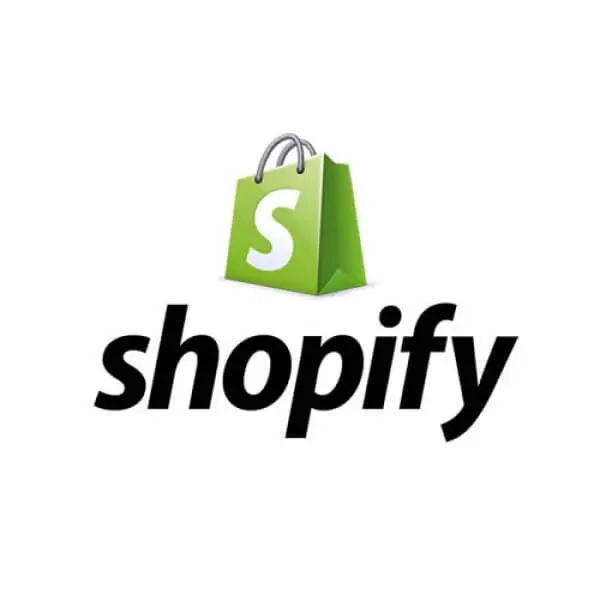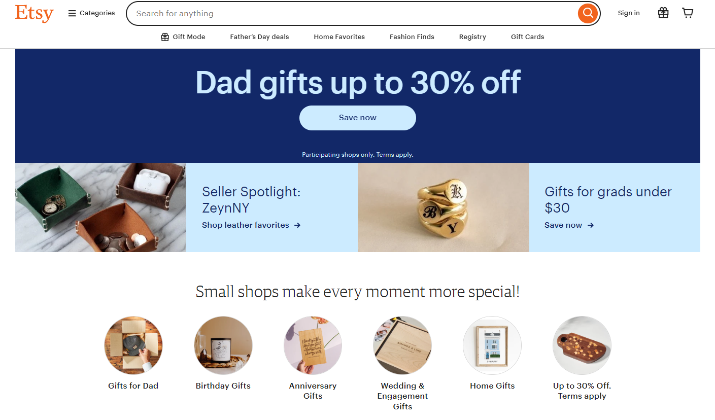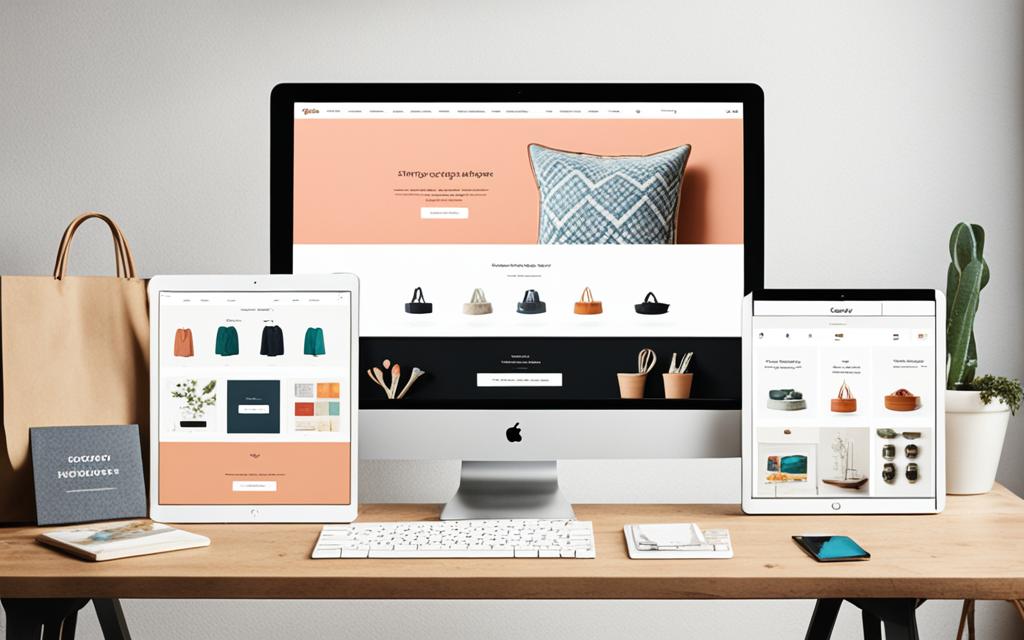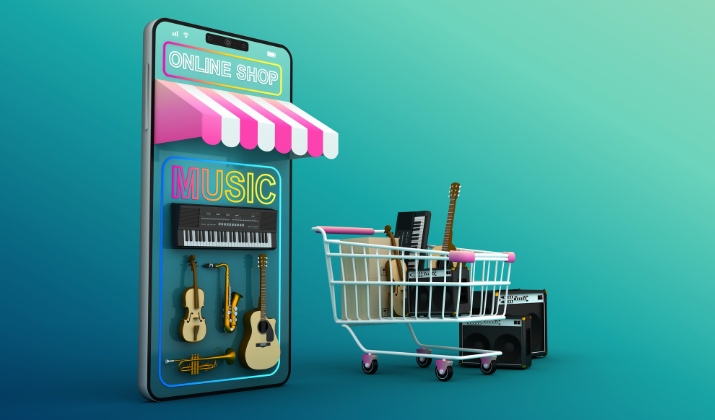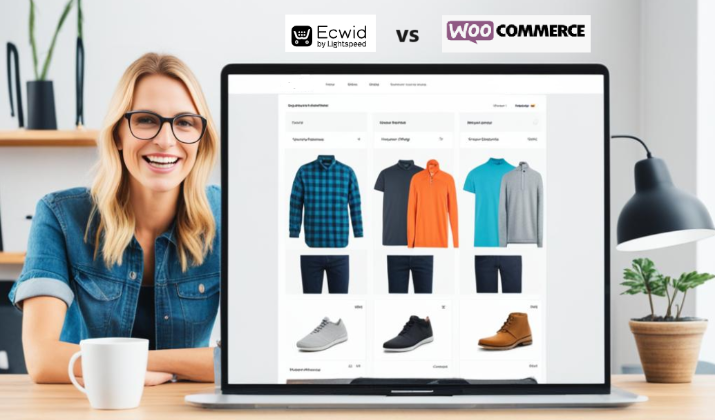Are you thinking of starting an online shop and wondering whether selling on Shopify or on Etsy is a better choice?
Well, each platform has its own set of features. They are good for different kinds of sellers and items.
Shopify lets you build and run your own online store. This means you control how it looks and how your customers interact with it.
Etsy, on the flip side, is a big online market. It’s known for handmade and unique goods and helps sellers reach a wider audience and customers.
So, which one is right for you? Let’s dig them inside out.
Shopify Features & Benefits
Shopify is an excellent choice for sellers going online.
It offers many features and benefits which help sellers market their products and promote sales.
Customizable Storefront
Creating a unique online store is easy with Shopify. You can design it to match your brand with a drag-and-drop tool. This tool lets you change your store’s look, making it attractive and professional for shoppers.
Extensive App Integration
Shopify has a lot of third-party apps to choose from. They can help with marketing, analyzing data, customer service, and managing inventory. These apps add power to your store, boosting sales and making everything run smoother.
Suitable for Various Products
It’s perfect for different kinds of products, like jewelry and clothes. Shopify has tools for any industry. It helps you make a store that catches customers’ eyes.
Strong Customer Support
Shopify is there for you, offering 24/7 help by chat, phone, or email. You can get assistance with anything, from store issues to technical problems. They have a smart team ready to support you any time of the day.
Pricing Structure
Shopify’s prices start from $29 a month, up to $2300 for the big plan, billed yearly. The cost might be a bit more than some rivals. However, the value it offers make it worthwhile. You also get a 14-day free trial and the first month for $1.
Flexible Payment Options
You can use many payment gateways with Shopify. They have Shopify Payments, too, which cuts out extra fees. You can also connect other payment providers. The flexibility helps meet your customers’ different payment needs.
Ecommerce Tools & Reports
Shopify has tools for everything, from managing stock to seeing how you’re doing with sales. These tools give you information to improve your online shop. They help you make smart choices for your business.
In short, Shopify is great for anyone wanting to start or grow an online business. Its personalizable store, app variety, and excellent support offer a needed edge in ecommerce.
Also Read: Shopify Free Trial
Try Shopify free followed by first month at just $1. No credit card required. Limited Time Offer.
Etsy Features & Benefits
Etsy is a great place for handmade, vintage, and craft goods.
As an Etsy seller, you get to show off what you make to lots of people. This brings in customers from all over, helping you grow your business.
Though it’s not as easy to design your shop on Etsy as it is on Shopify, Etsy does help creative workers a lot.
Global Audience & Marketplace
Selling on Etsy means you can reach a huge number of buyers worldwide. With millions shopping, you have the chance to show your work to many. This boosts your chances of selling and finding fans who love unique, handmade items.
Easy Shop Creation & Product Listings
It’s simple to set up shop on Etsy. You can make your shop look just how you want. And describing your products well helps attract buyers. Etsy gives you the tools to make your product pages look great and tell customers why they should buy.
Transaction & Listing Fees
Etsy does take a cut from your sales, but it’s not too much. You pay 6.5% Transaction fee. And for every item listed, there’s a small 20-cent charge. Remember, these costs are part of doing business, so think about them when pricing your items.
Built-in Marketing & Exposure
Having a shop on Etsy means you get its benefits, like lots of active buyers. Etsy does a lot to bring in shoppers, using ads, and marketing on various channels.
This can help more people see your work. But, doing your own marketing could make your shop even more popular and help sell more.
Check Out: Shopify vs Big Cartel
| Features | Etsy | Shopify |
|---|---|---|
| Global Marketplace | Yes | No (Requires marketing efforts) |
| Shop Customization | Limited | Extensive |
| Transaction Fees | 6.5% | No fees on Shopify Payments, 0.5-2% with other gateways |
| Listing Fees | $0.20 per listing | No additional fees |
| Customer Support | Email-based, 2-5 day response time | 24/7 live chat, phone, and email support |
Etsy does have its downsides, especially in shop design and fees. But it’s great for finding customers globally, setting up shop easily, and getting seen through Etsy’s own marketing.
Explore: ThriveCart vs Shopify
Pricing & Fees
Pricing is key before you make a choice.
Shopify has plans starting at $29 per month, going up to $2300 for big and complex setups.
On the other hand, Etsy is technically free for selling. But, sellers have to pay a $0.20 listing fee per item and a 6.5% transaction fee.
Etsy also charges 20 cents every time you add a new product. Every four months, there are more renewal fees too.
If you’re in the U.S., you’ll pay 3% plus 25 cents for each sale on Etsy. Shopify lets you list items without any charge. Sellers may find it more cost-effective because of this.
Try Shopify free followed by first month at just $1. No credit card required. Limited Time Offer.
Store Design & Customization
Shopify and Etsy stand out by offering different ways to customize stores. They take different paths to meet the varied needs of sellers.
Shopify shines with its many themes and a simple drag-and-drop design tool. This setup lets sellers make their stores stand out.
No matter what you sell, Shopify gives you the freedom to craft a special space for your customers. Shopify stands out for businesses wanting a unique look and smooth shopping for their customers.
Etsy, though, uses a more common design that makes item display and a unified look key. This common style makes all Etsy shops feel connected.
Even though Etsy has less customization, they do have Etsy Pattern. This lets sellers build a website that matches their Etsy shop’s look. So, you can still make your brand shine in a streamlined way with Etsy.
The look and feel of your online store are crucial for a great shopping experience. It’s vital to pick a platform that lets you design your store in line with your brand’s vision.
Shopify wins with more design options. But, Etsy stands out with its consistent and familiar Etsy Pattern. Your choice should be based on how much control and branding you want for your store.
Explore: Storefunnels vs Shopify
Try Shopify free followed by first month at just $1. No credit card required. Limited Time Offer.
Marketing & Promotion Tools
Shopify helps you increase your online presence with many features. It lets you send emails, improve your shop for search engines, share on social media, and run ads.
These tools help you reach more people and make more sales by using multiple channels.
Etsy works a bit differently. It relies on its marketplace to bring in customers. It doesn’t have as many tools as Shopify but does offer social sharing and some ads.
By using Etsy’s features, you can get seen without a lot of extra marketing. This lets you connect with folks already interested in unique items or vintage finds.
Your decision between Shopify and Etsy will reflect your marketing plans. If you want to oversee your marketing and use advanced tools, Shopify might be better suited.
Yet, if you like the idea of a platform with its own audience and offer special goods, Etsy’s built-in traffic could help you.
Think about what your marketing needs are and who you want to reach to make the best choice for your business.
Explore: Flipkart vs Shopify
Here’s a quick comparison:
| Shopify | Etsy | |
|---|---|---|
| Marketing Tools | Shopify has many marketing tools, like email marketing and SEO, to help you sell your products. | Etsy has tools for social sharing and some ads, using the visitors it already has. |
| Customer Reach | Shopify lets you find new customers through various channels and demographic targeting. | Etsy connects you with an audience specifically looking for unique, handmade, or vintage items. |
| Control | With Shopify, you control how you market and can grow using their advanced options. | Etsy depends more on its marketplace traffic, which can lessen the need for big marketing efforts. |
Customer Support & Assistance
Shopify gives 24/7 support through live chat, phone, and email. This means you can get help any time. They also offer several guides and resources to solve problems.
Etsy mainly uses email for support. They also have a help center with many resources. If you’re choosing a platform, think about how much support you might need and which help options are best for you.
Good customer support is key for a good selling experience. If you run into technical issues or need help with orders, a supportive team is a big help.
Think about what you value in support when picking between Shopify and Etsy.
Check Out: Shopify vs Go High Level
Try Shopify free followed by first month at just $1. No credit card required. Limited Time Offer.
Security & Trustworthiness
Shopify and Etsy put customers first by keeping their data safe. They both make sure transactions are secure.
For a seller, picking a platform is a big choice. Think hard about what your business and customers need for security and trust.
Shopify uses SSL certificates, 2-step verification, and tools to spot fraud. This makes selling online a safe place.
On the flip side, Etsy is more mysterious about its security methods, even though it has that important SSL certificate.
Both websites really care about keeping your data safe. But, Shopify is very open about how they do it. They offer SSL, 2-step login, and tools against bad tricks.
Also Read: Shopify vs Mijndomein
Conclusion
We found both Shopify and Etsy good for different reasons.
Shopify suits retail sellers well. It lets them fully customize their online stores. Sellers can also use various marketing tools and grow their businesses with ease.
However, Etsy is best for those selling unique, handmade items. It brings sellers closer to potential customers. Plus, setting up a store on Etsy is straightforward, perfect for beginners.
Now, here’s a catch. Etsy charges 20 cents for every product listed. But with Shopify, you can list as many products as you want without extra costs.
Looking at various charges, Etsy’s costs can add up quickly. Compared to this, Shopify’s fees start at $29 a month. Its pricing depends on what features you need.
In the end, both Shopify and Etsy are great for online selling. The best choice ties back to your business goals and who you’re trying to reach.


